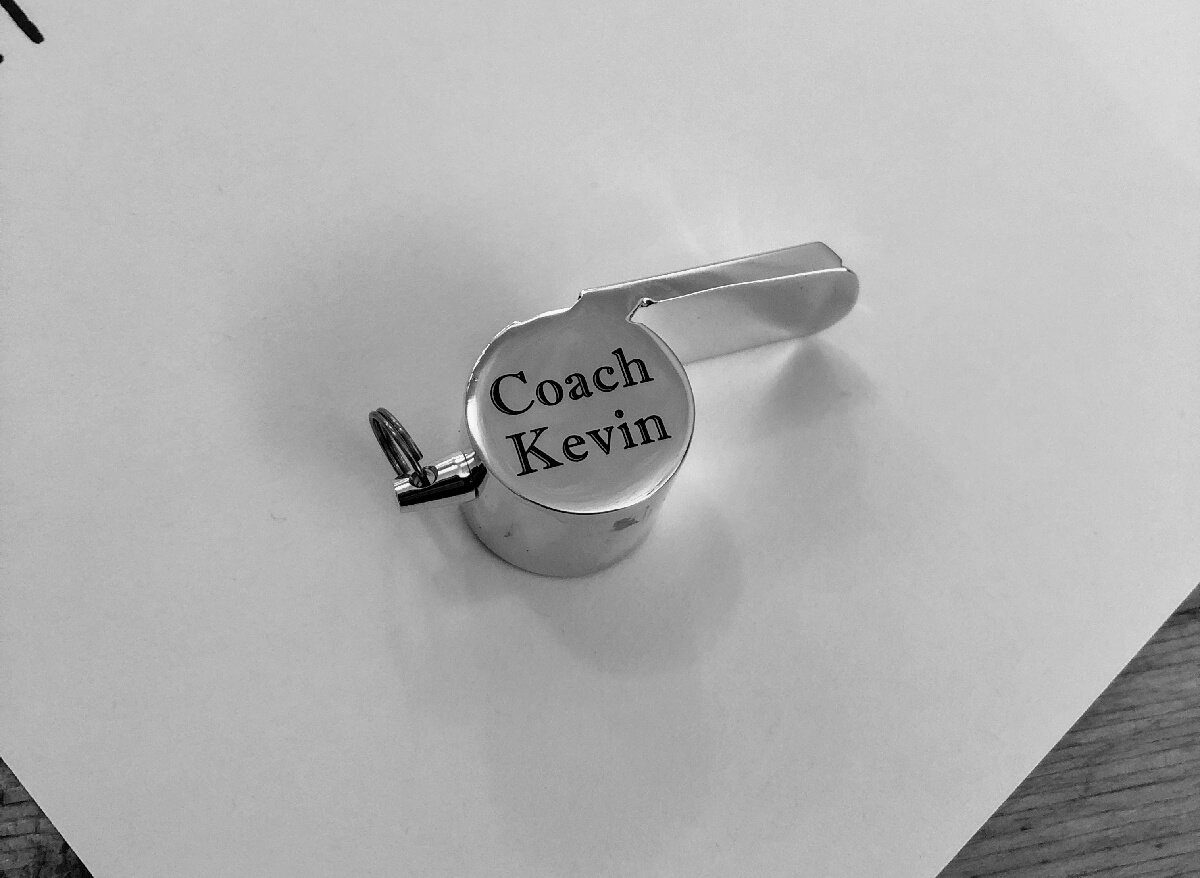Reflections on Coaching 30 Community Leaders/Organizers
March 7th, 2019

Thank you Niko for the thoughtful gift.
I spoke about my experience coaching community leaders on The Get-Together podcast. Listen below! 🎙🦉
Five years ago, an exec coach friend told me:
“Leadership doesn’t get easier. You just develop the tools to tackle bigger challenges.”
This quote was top of mind today. I’ve been reflecting on the ~30 conversations I’ve had this year as a coach to community leaders, organizers, and managers. Nearly every work day for the last seven weeks I’ve spent an hour, usually 1:1, with community leaders working through their big challenges.
The experience has lit my brain on fire. I made a resolution to do more coaching because I wanted to help more people get their people together. These coffees and Google Hangouts quickly evolved into my daily source of motivation. Every day, my business partner Bailey sees me with my post-coaching buzz. The leaders I meet gain clarity from talking out strategy and structure. In turn, they inspire me with their commitment to other humans.
They’re out there—building communities of women, creators, moms, scientists, artists, activists, models, POC, Asian Americans, educators, meditators, founders, employees, LGBTQIA, gamers, designers, developers, musicians, athletes, baristas, and more. Sometimes as an organization, sometimes as individual people people.
Here are three reflections, notes to myself, as I grow as a coach.
1. Jamming with others is a lot more fun than talking at them.
In his book, The Coaching Habit, author Michael Bungay Stanier declares that if you take one thing away from his coaching lessons it should be to ask more questions.
Before these meetings, I’d often jump in with tips/tricks/lessons. But this year, I developed an aversion to doling out advice in conversation. In each session, after getting to know the leader and their community, I focus on teasing out their key challenge with my questions. Some challenges are important, urgent, both, or neither. When you find the right challenge to press on, it’s like a domino. If we can move it, other aspects fall into place.

Kyle is building Innerglow, one of the most diverse meditation communities in NYC. 📸: dannyopsina
After identifying a challenge to go deeper on, the questions continue. Different communities have different context and different cultures. How can I assume to know the best course of action? I might believe in certain principles (like the power of shared ownership!). Yet, these leaders spend 99x more time with their people than I do.
What I can do is channel their brain power to lead us to an answer. So I guide, prod, and push, but still don’t assert. From these sessions, I’ve come to viscerally understand the difference between hearing great advice and reaching your own epiphany.
I believe the latter honors one’s experience, builds capacity, and downright feels better.

The team at Slant’d Media is creating a community that celebrates Asian American Identity. Empowering real people to share real stories.
2. Leaders need different support at different times.
What someone needs in a coaching session depends on who they are and where they’re at:
So I’ve had to wear different hats as coach:
- Sorter: “I’ve bucketed the strategies you’ve mentioned for attracting new folks into 3 categories. Is there a fourth that’s more collaborative or community-driven?”
- Decider: “Sounds like you’re flip-flopping on which fundraising strategy to spend time on. How about we define criteria to help make this decision?”
- Focuser: “You have a lot of interesting ideas to get people talking in the Slack community. How might we focus? What’s the primary thing that members will come back for?”
- Stickler: “Can I push you on your desire to ‘keep gatherings small.’ Why is that? It seems to be in tension with your overall mission.”
- Extractor: “We agree you must make this fundraiser more participatory. Let’s jam. What are some ideas for how to achieve that?”
- Backer: “Zoom out. You should know that this community you’re cultivating is rad. Thank you for the work you do.”
I hope to get quicker at reading what support leaders need. If I deduce what role I should play early in the conversation, I can push our conversations more confidently—not only arriving at insights faster but also exploring them at a deeper level.
(What’s your experience as someone who’s either given or received coaching? Are there other hats? 👒)

The organizers at Techfest Club foster a community for women in tech in NYC, focused on keeping women in tech.
3. My challenge is to scale my impact.
While coaching an hour a day this year has already introduced me to more NYC communities than last year, I feel the weight of my limiting factor: time.
To do more with my finite hours, I mulling over:
- How can I streamline my coaching process? Minimize/eliminate not-so valuable activities?
- How do I prioritize who to spend 1:1 coaching time with?
- How do I multiply my efforts to help people get people together?
I’ve already implemented mini-improvements (e.g. Calendly lets folks book time slots with me, cutting down on back and forth e-mails). But I believe the highest return will come from what I believe is at the heart of all community building: sharing ownership.
Can I work with others to support more community leaders? Perhaps that means getting cohorts of leaders together. Maybe collaborating with or training other coaches? If you have ideas on how I might scale up/evolve, please holler!

With Homoground, Lynn has cultivated a network of queer music and media creators. With over 200 episodes, she has one of the longest standing queer music podcasts.
I’m not sure where this coaching thing leads, but I know I love it. A fun byproduct has been just making new friends. I’ve gotten to participate in new gatherings/activities/efforts in my city. So thank you to every person I’ve jammed with, friends who provided intros, and folks who have been supportive. If you, or someone you know, are interested in meeting up, learn more about my coaching here.
—
P.S. If you have recommendations on coaching resources/training/tips, please share with me at kevin@kiwimonk.com!

